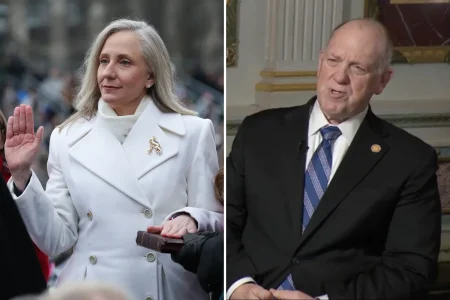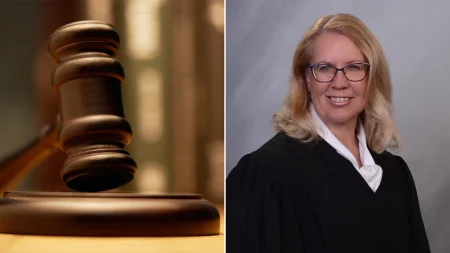Denmark-Greenland Adoption Controversy Exposes Colonial Legacy and Indigenous Rights Struggle
Long-Standing Tensions Reignite as Young Mother’s Case Captivates a Nation
In the frigid landscape of Greenland, where ancient traditions meet modern governance challenges, the heart-wrenching case of a young Indigenous mother has ignited a firestorm that reaches far beyond a personal family tragedy. A recent ruling that declared a young Greenlandic woman incapable of parenting her infant has transformed from an individual custody case into a powerful symbol of the complex, often painful relationship between Greenland and its former colonial ruler, Denmark. The decision, which effectively removed the child from its mother’s care, has struck a raw nerve in a society still grappling with the long shadow of colonialism and the ongoing struggle for complete self-determination.
The case involves a mother in her early twenties from a remote coastal settlement who, according to Danish authorities, demonstrated “insufficient parenting capabilities” during routine evaluations. Social services cited concerns about housing stability, economic resources, and what they termed “cultural adjustment difficulties” in their assessment. However, Greenlandic advocates argue these evaluations were conducted through a distinctly Danish cultural lens that fundamentally misunderstands Inuit family structures and childcare traditions. “What we’re witnessing is the continuation of decades-old policies that fundamentally misinterpret our ways of raising children,” explains Aaja Chemnitz Larsen, a member of the Danish parliament representing Greenland. “In Inuit culture, extended family networks share childcare responsibilities. This communal approach to raising children doesn’t align with Western nuclear family expectations, but it has sustained our people for generations.”
Historical Wounds Reopened: The Legacy of Forced Adoptions
This contemporary controversy has painfully reopened historical wounds still fresh in Greenlandic collective memory. Between the 1950s and 1970s, approximately 22 Greenlandic children were taken from their families and sent to Denmark as part of an assimilation experiment aimed at creating a “little elite” who would return to modernize Greenlandic society with Danish values and education. Many never returned home and lost connection with their language, culture, and families. In 2022, Denmark’s Prime Minister Mette Frederiksen formally apologized for this historical injustice, yet many Greenlanders view the current case as evidence that systemic bias against Indigenous parenting practices persists within Danish institutions. Naja Lyberth, a survivor of the forced adoption program and prominent activist, sees disturbing parallels: “The language has changed. The justifications sound more sophisticated. But the underlying assumption remains that Danish ways of living and parenting are superior to our traditional approaches.”
The controversy escalated when leaked documents revealed that Danish social workers had noted the mother’s “strong Greenlandic identity” as a potential concern for the child’s integration into Danish society. This revelation transformed what might have remained a private family matter into a nationwide debate about sovereignty and cultural autonomy. Public demonstrations erupted in Nuuk, Greenland’s capital, where thousands gathered holding signs with messages like “Our Children, Our Future” and “Decolonize Child Welfare.” The protests spread to Copenhagen, where the Greenlandic diaspora and Danish allies staged solidarity events demanding reform of cross-cultural adoption policies. Social media campaigns have amplified these voices, with hashtags like #JusticeForGreenlandicFamilies and #IndigenousParentingRights trending across Nordic countries.
Legal Complexities and Constitutional Questions
The legal dimensions of the case highlight the intricate and sometimes contradictory relationship between the two nations. While Greenland achieved self-rule in 2009, following a 2008 referendum that saw nearly 75% of voters supporting expanded autonomy, Denmark retains authority over foreign affairs, defense, and the supreme court system. Family law occupies a gray area, with Greenland having some jurisdiction over child welfare policies but Danish courts maintaining ultimate judicial authority in complex cases. This jurisdictional overlap creates a system where Greenlandic families can find themselves subject to Danish legal interpretations of parenting standards. “The current legal framework creates inherent power imbalances,” explains Lars Villadsen, professor of constitutional law at the University of Copenhagen. “Greenlandic authorities can implement culturally appropriate policies, but these can be effectively overruled when cases reach higher court levels dominated by Danish legal traditions and precedents.”
Adding further complexity to the situation, international law increasingly recognizes Indigenous peoples’ rights to maintain their cultural practices, including family structures and childcare approaches. The United Nations Declaration on the Rights of Indigenous Peoples, which Denmark has endorsed, explicitly affirms that Indigenous communities have the right to raise and educate their children in accordance with their cultural traditions. Legal experts suggest the current case could potentially be brought before international human rights bodies if domestic remedies fail to address what many see as cultural discrimination. Greenlandic authorities have already announced plans to accelerate the development of an independent family court system that would prioritize Indigenous perspectives and cultural context in childcare decisions. Mute Bourup Egede, Greenland’s Prime Minister, has called for “immediate systemic reforms” while emphasizing that “the well-being of children remains paramount, but must be understood within the cultural context of their communities.”
Economic Dependencies and Political Realities
Beyond the immediate legal and cultural dimensions, the controversy illuminates the broader economic and political realities shaping the Denmark-Greenland relationship. Despite gaining significant autonomy, Greenland still receives approximately $600 million annually in subsidies from Denmark, representing about one-third of its GDP. This economic dependency creates an inherent power imbalance that influences everything from resource development decisions to social policy implementation. “Economic self-sufficiency is the foundation of true sovereignty,” notes Sara Olsvig, former Greenlandic politician and Indigenous rights advocate. “Until we achieve financial independence, there will always be subtle and not-so-subtle pressures to conform to Danish expectations and systems.”
The adoption controversy has catalyzed discussions about accelerating Greenland’s path toward full independence, with younger Greenlanders particularly vocal about desiring complete separation from Denmark. However, pragmatic considerations temper this idealism. Greenland faces substantial challenges, including extreme infrastructure needs across its vast territory, limited economic diversification, and the mounting impacts of climate change on traditional livelihoods. The island’s rich mineral resources and strategic Arctic location have attracted international interest from global powers including China and the United States, complicating the political calculus surrounding independence. As Greenlandic author and cultural commentator Aka Niviana observes, “We find ourselves at a critical crossroads, balancing the deeply emotional pull toward complete sovereignty against the practical realities of governance in the modern Arctic. The adoption case has become a powerful symbol of this larger struggle—a reminder that true self-determination must include the right to define family and raise children according to our own cultural values.”
As this case continues to unfold, it serves as a powerful reminder that the legacy of colonialism persists in subtle yet profound ways that shape individual lives and collective futures. For many Greenlanders, the struggle for the return of one child to its mother represents something far larger: the ongoing journey toward complete cultural recognition, legal autonomy, and the healing of historical traumas. Whatever the ultimate resolution of this specific case, it has already succeeded in focusing international attention on the continuing challenges faced by Indigenous peoples seeking to maintain their cultural practices and family structures in a world still shaped by colonial legacies. The young mother at the center of this controversy may never have sought to become a symbol of her nation’s sovereignty struggle, but her personal fight has illuminated the unfinished business of decolonization in one of the world’s most remote yet geopolitically significant regions.







